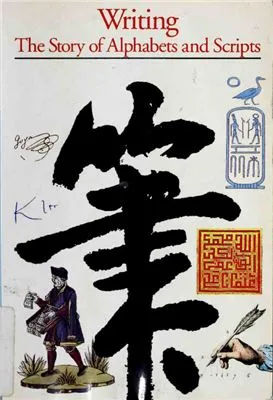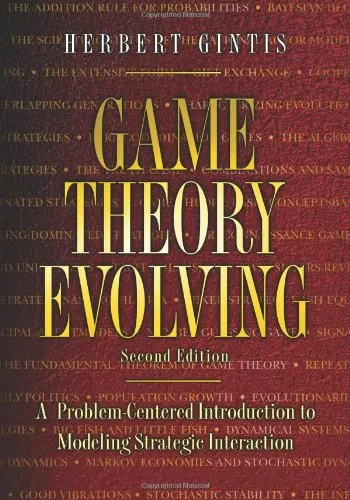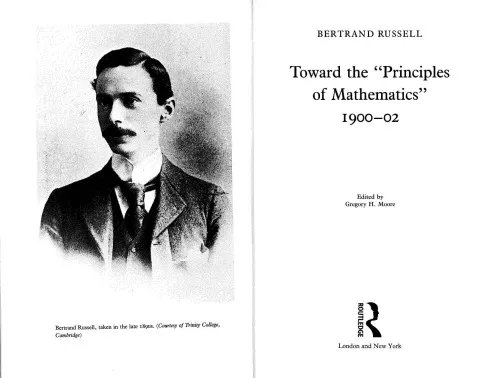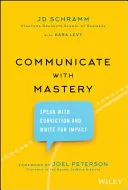Writing: The Story of Alphabets and Scripts
4.5
Reviews from our users

You Can Ask your questions from this book's AI after Login
Each download or ask from book AI costs 2 points. To earn more free points, please visit the Points Guide Page and complete some valuable actions.Related Refrences:
Introduction to "Writing: The Story of Alphabets and Scripts"
Writing, as we know it, is the vessel through which civilizations have preserved their histories, communicated ideas, and cultivated progress. In "Writing: The Story of Alphabets and Scripts," I delve into the fascinating evolution of written language, exploring how diverse cultures developed their own systems to encode thought and expression. This book is an essential guide for anyone who wishes to understand the profound impact of writing systems on human progress, drawing from ancient cuneiform to the modern-day alphabets we use globally.
Intertwining history, anthropology, and linguistics, this work illuminates how humans overcame the challenges of recording their spoken language into visible symbols. It is a journey through time, from the invention of early script forms like hieroglyphs and pictograms to the emergence of alphabets that function as the backbone of many modern languages. Seamlessly blending scholarship with storytelling, the book offers insights into the scientific, cultural, and philosophical aspects of writing systems, deeply enriching the reader’s comprehension of human ingenuity.
This detailed introduction will provide an in-depth summary of the book’s key themes, notable takeaways, quotes that embody its essence, and why this book holds an indispensable place for linguists, historians, language enthusiasts, and lay readers alike.
Detailed Summary
"Writing: The Story of Alphabets and Scripts" is a chronological exploration of the birth, growth, and transformation of writing systems over millennia. The book begins by addressing one of humanity’s most significant milestones—the transition from oral traditions to the first symbols scratched onto stone tablets and clay surfaces. This leap not only ensured the survival of ideas beyond their speakers but also laid the foundation for the advent of recorded history.
Moving beyond the earliest scripts like Mesopotamian cuneiform and Egyptian hieroglyphs, the book delves into the evolution of alphabets, beginning with the Proto-Sinaitic script, which forms the basis of Phoenician writing. It then explores how Phoenician alphabets influenced the Greek and Latin systems, giving rise to scripts that have shaped global culture today.
The book sheds light on non-alphabetic systems as well, such as Chinese logograms and the syllabaries used in Japanese writing, offering readers a comparative understanding of how scripts evolved to meet linguistic and cultural needs. In tracing these systems, the book emphasizes the role of innovation, adaptation, and cross-cultural exchange in advancing human expression.
Additionally, the text discusses the interplay between writing and technology—from the invention of paper and movable type to the digital screens of the Information Age. It concludes with a reflection on the impact of writing in shaping collective memory, identity, and communication practices that define society today.
Key Takeaways
- Writing is one of humanity's most profound inventions, evolving over thousands of years to meet the practical and creative needs of civilizations.
- Alphabets, scripts, and symbols are not static; they are the product of innovation, cultural exchange, and adaptation to changing times.
- Writing serves as a mirror for understanding societies, acting both as a tool for documentation and a means of expression.
- The history of writing is a story of human resilience and ingenuity, showcasing the universal desire to preserve ideas and communicate across barriers.
Famous Quotes from the Book
"Writing is not merely a code of letters—it is a testimony of human triumph over the limits of time and silence."
"Every script, every character, holds a fragment of the culture that birthed it, a whisper from the past etched in permanence."
"The alphabet is a masterpiece of abstraction, where the infinite varieties of speech are distilled into a finite set of shapes."
Why This Book Matters
"Writing: The Story of Alphabets and Scripts" is more than just a historical account—it is an exploration of how a simple human need to record ideas gave birth to an intricate tapestry of cultural, technical, and intellectual achievements. The book matters because it fosters a deeper appreciation for the systems we use daily but often take for granted. By uncovering the historical and cultural roots of writing, readers gain powerful perspectives on how communication has shaped humanity's journey.
Whether you are a historian, linguist, artist, or simply curious about the world, this book serves as a reminder of the richness and interconnectedness of human cultures. It invites readers to celebrate the written word as a cornerstone of civilization and an enduring legacy of creativity and perseverance.
Free Direct Download
You Can Download this book after Login
Accessing books through legal platforms and public libraries not only supports the rights of authors and publishers but also contributes to the sustainability of reading culture. Before downloading, please take a moment to consider these options.
Find this book on other platforms:
WorldCat helps you find books in libraries worldwide.
See ratings, reviews, and discussions on Goodreads.
Find and buy rare or used books on AbeBooks.
1631
بازدید4.5
امتیاز0
نظر98%
رضایتReviews:
4.5
Based on 0 users review
Questions & Answers
Ask questions about this book or help others by answering
No questions yet. Be the first to ask!













